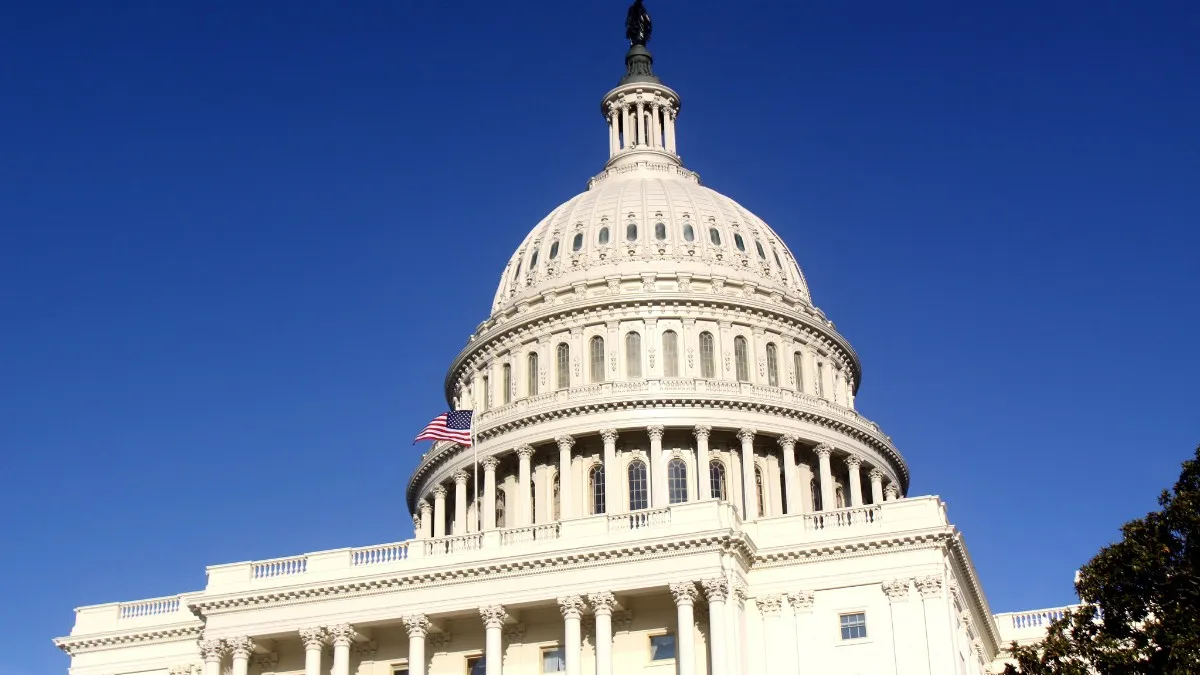Dive Brief:
- A new survey of contractors provides a bleak snapshot of the construction industry nearly six months into the coronavirus pandemic, finding that the share of contractors who have had future projects canceled or delayed due to COVID-19 has reached 60% — nearly double the amount from June.
- In addition, 33% of firms said projects already in progress had been halted due to the pandemic, according to the survey by the Associated General Contractors of America (AGC) and software firm Autodesk.
- It also noted that the pandemic has exacerbated the industry's persistent labor shortage, with 44% of firms that tried to recall laid-off or furloughed workers saying that some staff have refused to return to work, citing a preference for unemployment benefits, virus concerns or family responsibilities.
Dive Insight:
The results of the survey, which polled more than 2,000 firms between August 4 and 26, underlined the downtrodden outlook at many construction firms, which have seen their backlog of work diminish among a dearth of new project opportunities. They’ve suffered drops in productivity and increased costs due to COVID-19 mitigation protocols, which have compressed profit margins.
“I’m more pessimistic than I like to be,” said Ken Simonson, AGC’s chief economist during a virtual conference call announcing the results of the study yesterday.
The share of firms reporting canceled projects has nearly doubled since the survey AGC conducted in June, when 32% of respondents reported cancellations.
The challenges come amid perceptions of inaction on the part of lawmakers to address the mounting issues facing the construction industry, AGC officials said.
Asked during a question-and-answer session which political party would be better for construction in the November elections, AGC CEO Stephen E. Sandherr told attendees neither President Trump or Democratic candidate Joe Biden showed they would help the industry.
“I would say neither,” Sandherr said. “We have a Republican Senate, we have a Democratic House, and they have done nothing on this issue.”
Six days before legislators are scheduled to return from their August recess, Sandherr on Wednesday said AGC had proposed an infusion of $37 billion to the states to make up for revenue shortfalls that support transportation projects, but those pleas had fallen on deaf ears.
“We're in this political stalemate on this and many other issues that have an impact on construction markets, and everybody's out of town," Sandherr said. "So right now, I would say that neither party is working in AGC's interests.”
Doug Hacker, executive vice president at Lexington, Kentucky-based commercial building contractor Congleton-Hacker Co., one of two contractors on the call, told attendees his firm’s experiences were in line with the survey's results.
“We've seen roughly a half a dozen projects either slowed or halted during this period, and roughly another three projects that were stopped altogether,” Hacker said. He voiced concern about the lack of new projects coming to market, combined with his diminishing backlog.
“We're just burning that backlog off,” he said. In addition, he said the federal government’s $600 weekly supplement to unemployment checks had made it increasingly challenging to bring workers back to his shop.
“That unemployment benefit that was tacked on really hurt,” Hacker said. “Now that [workers] are seeing that the future is not that bright on the construction side down here, it's even harder to pull them away to where they've got to give up that unemployment, and risk possibly having to get back in line for it.”
Art Daniel, president and COO of Ceder Hill, Texas-based AR Daniel Construction Services, which focuses on infrastructure projects, said his current jobs, many of which are planned years in advance, haven't stopped.
But he was increasingly worried about what will happen down the road, especially since Congress hasn’t renewed the FAST Act, which funds highway construction, and is due to expire Sept. 30, just 23 days after legislators return from vacation.
“There's a growing sense that we're doing fine now, but we have some concerns about what's out there,” Daniel told attendees. “The bottom hasn’t dropped out yet.”
Simonson said that the industry and its supporters in Congress have their work cut out for them.
“I really think it's going to take a rebuilding of confidence on the part of the public and the businesses that we're not going to see another round of shutdowns," Simonson said. "I think the fact that some states opened up early and then pulled back, that's been devastating for people who are making long-term investment decisions.”
Hacker asked AGC to keep going on its legislative efforts to help contractors, so that contractors could help themselves.
“Just give us time to build confidence,” Hacker said. “I think confidence can spread quicker than this COVID, if given enough time.”














